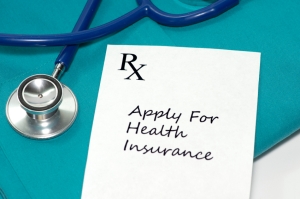 The Affordable Care Act (ACA) has made it mandatory for most Americans to have health insurance.
The Affordable Care Act (ACA) has made it mandatory for most Americans to have health insurance.
In addition to making health insurance mandatory, the new law also makes health insurance guaranteed issue. This means you cannot be denied coverage for any reason — even if you have a pre-existing medical condition.
If you live in Virginia, Maryland, or the District of Columbia, Virginia Medical Plans can help you get the coverage you need — and avoid a penalty for being uninsured.
Open Enrollment for Health Insurance
During certain times of the year, anyone can buy coverage, for any reason. This time is known as open enrollment:
- For plans effective in 2015: Nov 15, 2014 through Feb 15, 2015 (now closed)
- For plans effective in 2016: Nov 1, 2015 through Jan 31, 2016
Buying Coverage Outside of Open Enrollment
What if you need coverage outside the dates of open enrollment?
Certain life events are considered qualifying events and trigger a special enrollment period during which you may buy a plan.
What are Qualifying Events?
Examples of qualifying events:
- Change in marital status (marriage/divorce/death of a spouse)
- Relocation to a new state or to an area of your current state where the plans offered are different
- Change in family size (birth/adoption/death of a child)
- Involuntary loss of minimum essential health coverage (change in employment status, cancellation of current coverage)
- Certain changes in income
- Expiration of COBRA benefits
- A change in family structure — for example becoming a dependent or gaining a dependent through birth, adoption, or placement in foster care — which causes your current plan to no longer meet your needs.
- An increase in your income to the federal poverty level (FPL) if you live in a state which has not expanded Medicaid. Earning at least 100% of FPL takes you out of the Medicaid coverage gap and makes you eligible for premium tax credits when buying health insurance on the exchange.
- A court order requiring you to provide health insurance (for example during divorce proceedings).
- Termination of your pre-Affordable Care Act plan outside open enrollment.
What Should You Do if You Have a Qualifying Event?
If you have a qualifying event, you must submit proof of the event and the date it occurred in order to purchase a new plan. Without proof, most carriers will not process your application.
You have a limited amount of time after a qualifying event to purchase new coverage, so you must act quickly.
Contact us right away so we can direct you to your best option.
If you have a qualifying event and are eligible for a subsidy (click here to find out), then you need to purchase coverage on your state’s health insurance exchange (healthcare.gov for Virginia residents, marylandhealthconnection.com for Maryland residents, dchealthlink.com for DC residents).
If you are not eligible for a subsidy, you can apply directly with the carrier of your choice:
Whether you buy coverage directly from the carrier or on your state’s exchange, a quick call to our office at 703-702-8270 will allow us to help you understand your options and choose the plan that makes the most sense for your health needs and your budget.
Short-Term Health Insurance
Without a qualifying event, you can purchase a short-term health plan outside of open enrollment. These plans provide limited coverage, so please be sure you understand what you’re buying.
Contact Virginia Medical Plans
Call us today at 703-707-8270 and we will walk you through your options.










